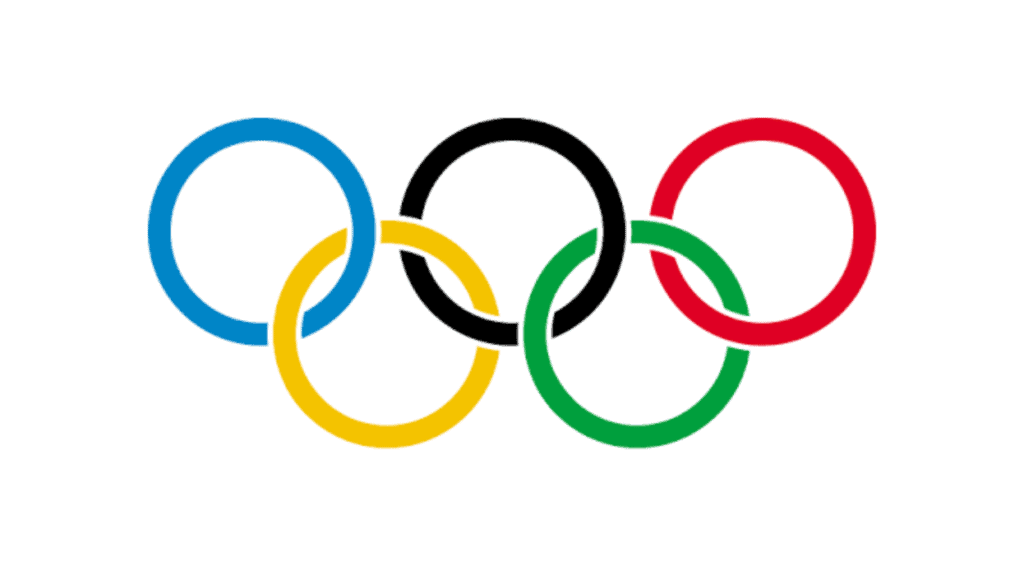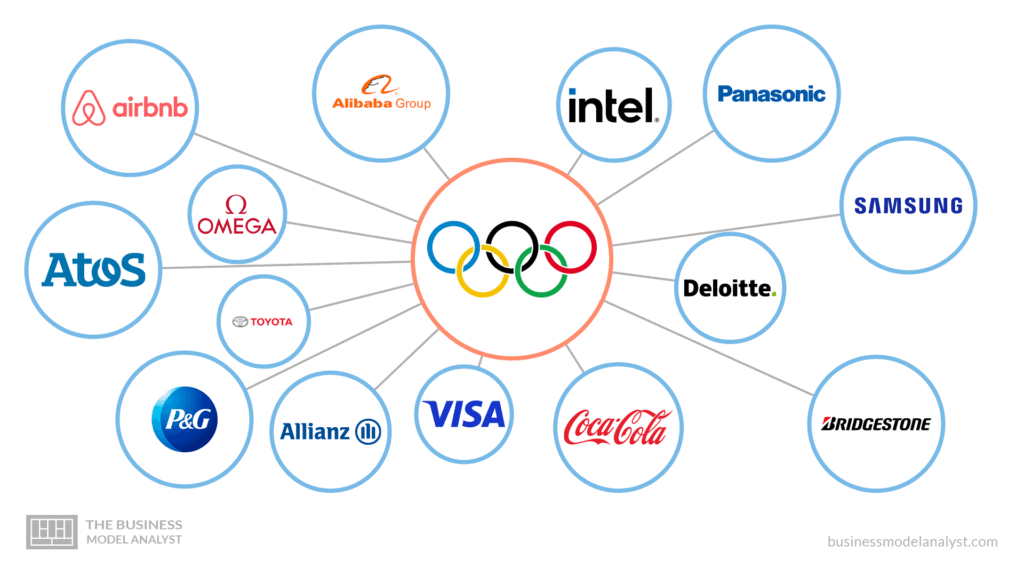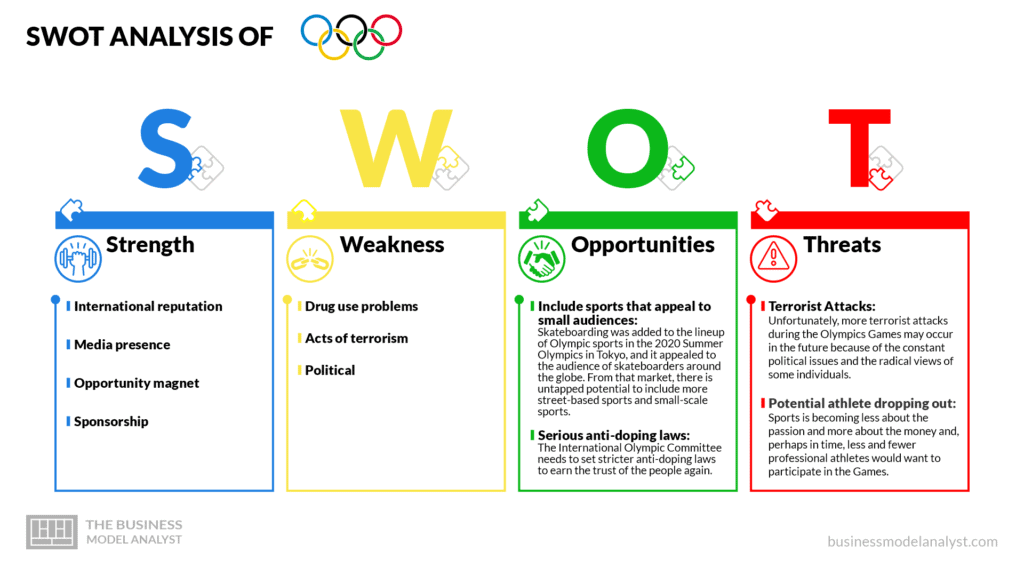The Summer Olympics, formally known as “The Games of the Olympiad”, is an international sports festival held once every four years in a host country. These games have been a staple in world sports culture for 126 years, from the Summer Olympics that started in 1896 to the Winter Olympics that were included in 1924. In this article, we will dive into the Olympics business smodel and the methods used to keep the games going.
The Olympic Games are run by the International Olympic Committee (IOC) and, in collaboration with the country of the host city, the National Olympic Committee (NOC). The first Olympic Games took place in Athens, Greece in 1896, and only nine sports were contested. Throughout the history of the Olympics, multiple sports have been added and removed. Only five sports have been held consistently since the first Olympics; athletics, cycling, fencing, gymnastics, and swimming.
The International Olympic Committee is a non-profit organization, and its goal is to finance a better world by placing sport at the helm of human development.

Contents
A brief history of the Olympics
In honor of the Greek god Zeus, the ancient Olympic Games were held in Olympia, a place in Greece and a major sanctuary of Zeus in ancient times.
However, the modern Olympic Games began in 1896 in Athens, Greece, through the efforts of French historian Baron Pierre de Coubertin, now known as the father of the modern Olympic Games. Baron Pierre was the founder of the International Olympic Committee and its second president. He presented the idea of the modern Olympic Games in 1894, with initial plans to host the first games in Paris. Captivated by his idea, delegates from thirty-four other countries convinced him to host the first games in Athens, as Greece is the birthplace of the Olympic Games. This decision was made in a congress organized by Pierre de Coubertin in Paris on June 23, 1894, and it was at this congress that the IOC was established.
The first games were held from the 6th to the 15th of April in the Panathenaic Stadium, Greece. The games had just 245 competitors, more than 200 of them Greek. Only 14 countries were represented, and female athletes were not allowed to compete. Nevertheless, it was the first major international sporting event ever held, and it was widely regarded as a success by both officials and the public. Despite the fact that Greece had more athletes, the U.S. finished with the most champions, with eleven Americans placing first in their events.
The next Olympics were held four years later, in the summer of 1900, in Paris. Aside from being the first Olympics that women were officially allowed to compete in, it attracted more athletes and was a major success. The next Olympics were held in 1904 in St. Louis, Missouri, and were not as popular as the first two. 1904 and 1905 marked the period of the Japanese-Russian War, and tensions from this altercation ended the Olympics with very few top-ranked athletes from outside the U.S. and Canada taking part in the games.
The 1908 Summer Olympics, also known as “London 1908”, took place in London, England from 27 April to 31 October 1908. The games were originally supposed to be held in Rome, but were moved following the aftermath of the eruption of Mount Vesuvius in 1906. The 1908 London Games produced a high turnout of both athletes and spectators, and it was the first Olympics where the now standard marathon distance of 42.195 km was run. The Games were a huge success, particularly for the host country Great Britain, which won 146 medals, its best ever result.
The 1912 Summer Olympics, held in Stockholm, Sweden, were the last Olympic Games to take place before World War I began in 1914. Twenty-eight countries participated in the event, and for the first time ever, a country from all five inhabited continents was represented in the Games.
In 1916, the Summer Olympics were scheduled to be held in Berlin, Germany, but were canceled due to the outbreak of the First World War. The Olympic Games resumed after the war with the 1920 Summer Olympics held in Antwerp, Belgium. Due to the aftermath of the war, Hungary, Germany, Austria, Bulgaria, and the Ottoman Empire were banned from competing, and the newly formed Soviet Union chose not to participate. The next Olympics were held four years later in Amsterdam, and they were notable for being the first to allow females to compete in track and field athletics. It was also the first time the Games introduced sponsorship, with the Coca-Cola Company being the first ever sponsor. The 1928 Amsterdam Games were also when the standard medal design was introduced by the IOC.
The Olympic Games were plagued with numerous problems from 1932–1940, from the Great Depression affecting athlete turnout in the 1932 Los Angeles Games, the 1936 Games being used to promote Nazi propaganda, to the 1940 games in Tokyo being relocated to Finland before ultimately being canceled. And because of the war, the 1944 games that were to be held in London were also canceled. London got to host the first post-war games four years later after the Second World War ended.
The Olympic Games from 1952 to 1964 were all successes, though each had its own flaws. The first games held in Latin America took place in 1968 in Mexico City. The games showed numerous displays of civil rights activism due to political tensions running in numerous countries. Subsequently, the 1972 Olympic Games held in Munich ended up being even more political, as a terrorist group invaded the Olympic village and held the Israeli representative hostage. Unfortunately, several were killed during this attack, drawing attention away from the athletic achievements that were achieved during the games.
Since its inception in 1896 and the end of the Second World War, the Olympics have taken place in nineteen different countries over five continents. So far, there have been 29 summers Olympic Games held in 23 cities and 24 winter Olympic Games held in 21 cities. Africa has yet to host an Olympic Games edition, as well as the Middle East, Central Asia, the Indian subcontinent, Southeast Asia, the South Pacific, as well as Central America, and the Caribbean.
Who Owns the Olympics
The Olympic Games are organized by the International Olympic Committee (IOC), a non-governmental sports organization based in Lausanne, Switzerland.
The IOC was founded on June 23rd, 1894, by Baron Pierre de Coubertin and is currently headed by its President, Thomas Bach, an Olympic gold medalist, and former Olympic fencer.
The Olympics Mission Statement
“The goal of Olympism is to place sport at the service of the harmonious development of humankind, with a view to promoting a peaceful society concerned with the preservation of human dignity.”
How the Olympics make money
The IOC is a non-profit organization that runs the Olympic Games. The revenue generated from the games is used to support athletes worldwide, and they are as follows:
Broadcast rights
The IOC has all the global broadcast rights to the Olympic Games, including television, radio, mobile phones, and internet platforms. The organization sells these rights to broadcasters around the world to ensure the widest coverage of the Games.
Program marketing rights
The Olympic Partner (TOP) program is a global sponsorship program created in 1985 to generate revenue for the Olympic Games organizers and the Olympic Movement. 30% of the IOC revenue comes from this program.
Other income streams
The sale of tickets and licensed products, as well as donations, fees from vendors, and money from private sources, make up the remaining portion of the Olympics revenue.
The Olympics’ Business Model Canvas

Here’s an analysis of the Olympic business model canvas.
The Olympics’ Customer Segments
The Olympics’ customer segments consist of:
- Media Companies: About 61% of the Olympics’ revenue comes from the sale of broadcast rights to media companies. These media companies include cable networks, Internet platforms, and even radio stations. The International Olympic Committee targets such companies in order to offer wide coverage for the events;
- Brands and businesses: Brands and businesses are always looking for bigger and better ways to promote their products. The Olympic Games are viewed by many people around the world, so big businesses such as Toyota, McDonald’s and Coca-Cola pay top dollar to sponsor the Games and Olympic athletes;
- Consumers: The Olympics aim to appeal to both males and females in the age group of 15–70 who are interested in sporting events and have the means to watch and participate. These individuals make up the spectators and viewers at home and are the customers for the Olympics licensed products.
The Olympics’ Value Propositions
The Olympics’ value propositions consist of:
- Viewership increase: The Olympic Games offer channels and cable networks a means to increase their viewership during the duration of the Games;
- Advertising opportunity: Brands and businesses have the opportunity to advertise their products and services during the biggest multidiscipline sporting event in the world;
- Family friendly entertainment: Consumers and customers are provided with the chance to sit back and enjoy the entertainment sporting events bring.

The Olympics’ Channels
The Olympics’ channels consist of:
- Website
- Social media
- Press releases
The Olympics’ Customer Relationships
The Olympics’ customer relationships consist of
- Email relations
- Social media
The Olympics’ Revenue Streams
The Olympics’ revenue streams consist of:
- Sale of broadcast rights
- TOP program marketing rights
- Sale of tickets and licensed products
The Olympics’ Key Resources
The Olympics’ key resources consist of:
- Brand sponsorships
- Host countries
- Athlete support organizations
The Olympics’ Key Activities
The Olympics’ key activities consist of:
- Organization of the future Olympic Games
- Supporting of athletes
- Organization of the Youth Olympic Games
The Olympics’ Key Partners
The Olympics’ key partners consist of:
- Media companies
- Food brands
- Athletes
The Olympics’ Cost Structure
The Olympics’ cost structure consists of:
- Olympic game organization
- Athlete development
- Olympic Movement
- Support for international federations
The Olympics’ Competitors
- The Asian Games: Also known as the Asiad, this multi-sport event is held every four years among athletes from all over Asia. The first event was held in 1951 in New Delhi, India. Although not as well known internationally as the Olympics, the Asian Games are popular in their home continent, Asia;
- The Commonwealth Games: Often referred to as the Friendly Games, the Commonwealth Games is a multi-sport event held between the 56 Commonwealth of Nations member states. The event was first held in 1930 and has gone on every four years since then except for 1942 and 1946 due to the Second World War;
- The Pan American Games: The Pan American Games, or the Pan Am Games, are held every four years before the Olympics among athletes from nations of the Americas. The first event took place in 1951 in Buenos Aires, Argentina;
- The Mediterranean Games: This multi-sport event is organized by the International Committee of the Mediterranean Games and held every four years among athletes from countries bordering the Mediterranean Sea in Africa, Asia and Europe. The first games were held in 1951 in Alexandria, Egypt.
The Olympics’ SWOT Analysis
Here’s a breakdown of the Olympics’ SWOT analysis:

The Olympics’ Strengths
- International reputation: The Olympics are the biggest multi-sport event in the world, with participants and supporters in nations on every continent. Due to its fame and standing, the Olympics have remained profitable and popular for years;
- Media presence: The International Olympic Committee has sole rights over the broadcasting of the Games, and its worldwide media coverage is unmatched;
- Opportunity magnet: The Olympic Games serve as an opportunity for the host country to display themselves to the world, as well as increase tourism. The Games also give athletes the opportunity to display their talents before a wide audience, bringing them brand deals and more sporting opportunities;
- Sponsorship: The Summer Olympic Games is sponsored by some of the top brands in the world, adding to its fame and reputation as well as that of the brand.
The Olympics’ Weaknesses
- Drug use problems: Since West German ice hockey player Alois Schloder was found guilty of doping in the 1972 Sapporo Games, doping problems have constantly arisen among Olympic athletes, subsequently making viewers question the integrity of the Games;
- Acts of terrorism: The 1972 Munich Games ended in the deaths of numerous people due to terrorist attacks. People wonder if athletes are truly safe while at the games;
- Political: The Olympics are supposed to celebrate humanity through sporting events. However, politics keeps getting in the way of the games and multiple games have been boycotted due to political reasons.
The Olympics’ Opportunities
- Include sports that appeal to small audiences: Skateboarding was added to the lineup of Olympic sports in the 2020 Summer Olympics in Tokyo, and it appealed to the audience of skateboarders around the globe. From that market, there is untapped potential to include more street-based sports and small-scale sports;
- Serious anti-doping laws: The International Olympic Committee needs to set stricter anti-doping laws to earn the trust of the people again.
The Olympics’ Threats
- Terrorist Attacks: Unfortunately, more terrorist attacks during the Olympics Games may occur in the future because of the constant political issues and the radical views of some individuals;
- Potential athlete dropping out: sports is becoming less about the passion and more about the money and, perhaps in time, less and fewer professional athletes would want to participate in the Games.
Conclusion
Since its inception in 1896, the Summer Olympics and the International Olympic Committee have been doing their best for athletes worldwide. Its strengths and humanitarian efforts have gone a long way in the sporting world.
Nevertheless, the Games would do well to crack down on their doping policies, increase their efforts to protect athletes and explore other opportunities in new sports.

